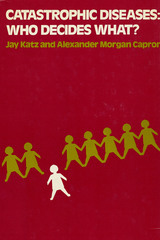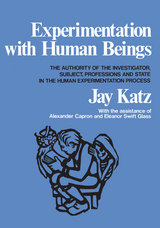
Research with human subjects has long been controversial because of the conflicts that often arise between promoting scientific knowledge and protecting the rights and welfare of subjects. Twenty-five years ago the National Commission for the Protection of Human Subjects of Biomedical and Behavioral Research addressed these conflicts. The result was the Belmont Report: Ethical Principles and Guidance for Research Involving Human Subjects, a report that identified foundational principles for ethical research with human subjects: respect for persons, beneficence, and justice.
Since the publication of Belmont, these three principles have greatly influenced discussions of research with human subjects. While they are often regarded as the single-most influential set of guidelines for biomedical research and practice in the United States (and other parts of the world), not everyone agrees that they provide adequate guidance. Belmont Revisited brings together a stellar group of scholars in bioethics to revisit the findings of that original report. Their responses constitute a broad overview of the development of the Belmont Report and the extent of its influence, especially on governmental commissions, as well as an assessment of its virtues and shortcomings.
Belmont Revisited looks back to reexamine the creation and influence of the Belmont Report, and also looks forward to the future of research—with a strong call to rethink how institutions and investigators can conduct research more ethically.



In Replacement Parts, internationally recognized bioethicist Arthur L. Caplan and coeditors James J. McCartney and Daniel P. Reid assemble seminal writings from medicine, philosophy, economics, and religion that address the ethical challenges raised by organ transplantation. Caplan's new lead essay explains the shortfalls of present policies. From there, book sections take an interdisciplinary approach to fundamental issues like the determination of death and the dead donor rule; the divisive case of using anencephalic infants as organ donors; the sale of cadaveric or live organs; possible strategies for increasing the number of available organs, including market solutions and the idea of presumed consent; and questions surrounding transplant tourism and "gaming the system" by using the media to gain access to organs.
Timely and balanced, Replacement Parts is a first-of-its-kind collection aimed at surgeons, physicians, nurses, and other professionals involved in this essential lifesaving activity that is often fraught with ethical controversy.
READERS
Browse our collection.
PUBLISHERS
See BiblioVault's publisher services.
STUDENT SERVICES
Files for college accessibility offices.
UChicago Accessibility Resources
home | accessibility | search | about | contact us
BiblioVault ® 2001 - 2024
The University of Chicago Press









